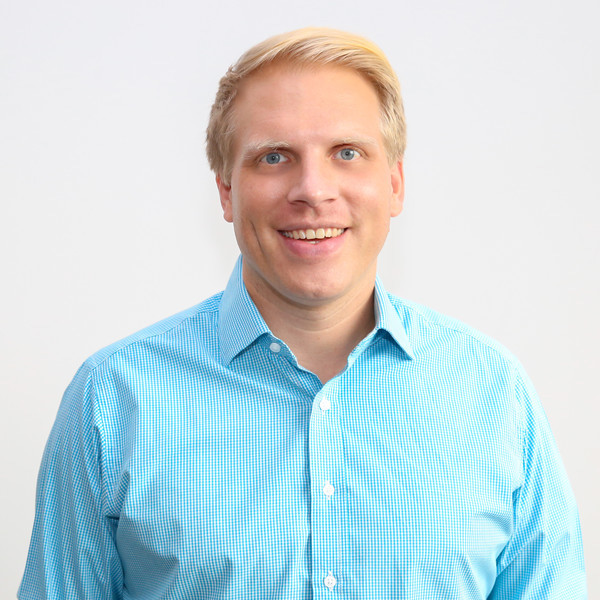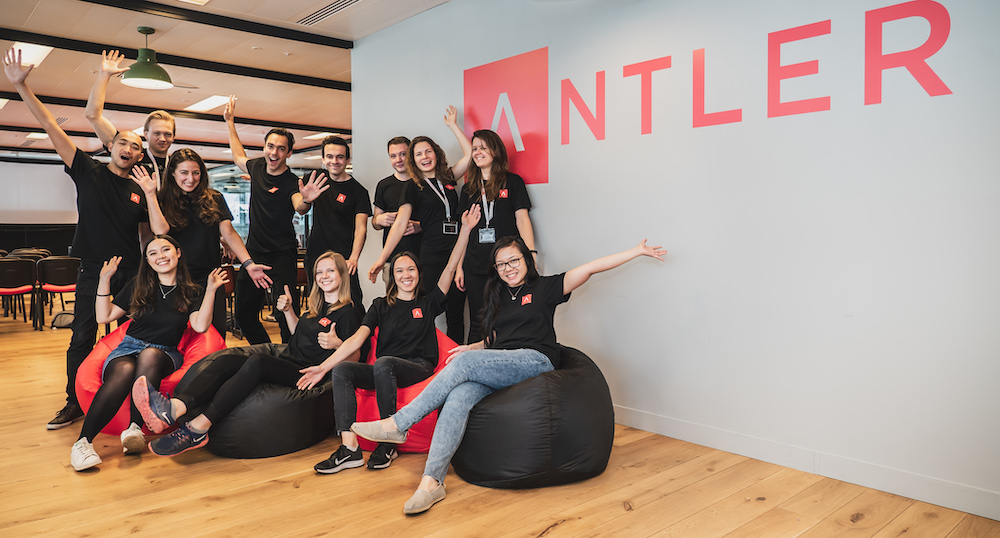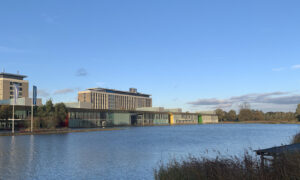(Editor’s note: Dispatches covers the startup/scale-up world because no innovation happens in Europe without highly skilled internationals. Ask Antler founder Magnus Grimeland, who’s Norwegian.)
You’re going to hear more and more about “venture building” as the concept competes with conventional startups. Which means you’re going to hear more and more about Antler, its new startup model and its global network that includes Amsterdam, Singapore and Stockholm.
In 2019, top global talent is gravitating to the startup lifestyle … a world where a killer idea and a great team can make you crazy rich, crazy fast. Ask the founders of Booking.com, Skype, Klarna, Adyen, Mojang and King Digital, just to name a few.

This is a world where a great team with an idea and a pitch deck can raise 50 million. But it’s a complex world with its own opaque jargon of burn rates, tag along/drag alongs and cap tables. And in Europe, everyone seems to have a new approach to assembling teams of A-players.
Most of the time, Dispatches is reporting from the startup side of the Innovation Wars, covering startups with great ideas fighting to convince investors they have the right team. But recently, we got to see the other side of the equation, spending an afternoon at the new Amsterdam Zuid offices of global startup generator Antler, which is based in Singapore.
In the bargain, we got to see an interesting take on venture building, which is the new new thing in the startup world. We were invited to hear a pitch to potential investors by Antler co-founder and Magnus Grimeland, a very granular pitch in which he got deeply into the venture-building approach he brought to Amsterdam earlier this year.
So let’s get right to the Antler approach.
Less risk; more innovation
First and foremost, Grimeland and Antler are all about building great companies while mitigating risk for investors. To that end, rather than funding random teams, Antler builds teams around entrepreneurs with good ideas, seed-funding them with about 105,000 euros for 10 percent of the company while taking them through a six-month accelerator.
Grimeland told the group of prospective investors that most companies fail because of flaws with the team or business model. And, he added, there are too many “lifestyle entrepreneurs” and part-time startup tourists, which is why Antler recruits people with proven track records.
“You won’t reduce the risk to zero. You’ll never do that,” Grimeland said. “But you can take away a lot of this risk and that’s what I’m here to focus on. Bringing in amazing people to work on business models that make sense.”
With this approach, Antler has no trouble attracting potential talent – both aspiring entrepreneurs and veterans with big exits to their credit. And many teams/founders want Antler’s global networks of mentor and investors, not necessarily the capital, Grimeland said.
Typically, 1,000 applicants per week ask to enter the Antler programs around the world. Amsterdam is growing quickly because it’s attractive not just to Dutch talent, but to people across Europe, “and we expect to see more of them coming in,” Grimeland said.
Global startup generator
In his 45-minute presentation, he touched on his entrepreneurial journey from selling eggs on his family farm in Norway to Harvard, where he built his first digital company, CrimsonReading.org, which helps students compare textbook prices.
Then it was off to a stint at New York City-based consultant McKinsey & Co. from 2007 to 2013 before he went to Zalora, an e-commerce fashion startup in Asia that’s part of Berlin-based Rocket Internet.
Now, Grimeland is turning Antler into a global venture building effort that started in Singapore last year, then expanded to Amsterdam last January. Antler is a “global startup generator, but we’re also a venture capital fund,” he said, investing directly in the businesses they generate.
(Each Antler location has a 30 million euro fund, coming in early at low valuations, and forty percent of the initial investment covers fees and initial costs.)
If you’re thinking all this sounds too good to be true from the entrepreneurial side, you’re not alone. Which is why we pinged several of the people here in the Netherlands listed as advisors, who confirmed their relationships with Antler.
The Antler approach is essentially assembly line company-building.
Antler is looking for three types of founders: product builders, industry experts and people with operational and sales skills.
Antler’s play is industry agnostic and diverse including medtech, sharing economy, food tech and fintech, “What we really care about is getting the best talent,” Grimeland said. “If that talent is in the food technology and they’re passionate about that, we know it’s a big enough (sector) to build great businesses, and we do that for them.”
Talent search
When Antler enters a new ecosystem, they begin with digital headhunting. In Amsterdam last January, staffers sent out 6,000 emails to people in their LinkedIn database “who have the interesting traits to become great founders,” Grimeland said. That generated 1,500 applicants who were interviewed first by Antler staff, then by partners.
Of those, his team chose 70 candidates, or five percent.
Typically, the number of applications doubles between Cohort 1 and Cohort 2, Grimeland said. Which gives you an idea of the scale of Antler’s ambitions.
The Antler approach includes more due diligence than other early stage investors, coaching teams for two months after selection.
In Amsterdam, those 70 founders have formed 28 teams that have presented to investors, with a demo day coming up on 31 October. Antler staffers want to know if those candidates have “an inner spark, an inner engine … the tenacity and grit to really stay in the game,” Grimeland said. Because building a business is never easy, even if you have the best idea and market ever: “You will hit barriers.”
Candidates tend to come out of top universities, and 85 percent of the first Amsterdam cohort have a post-graduate degree, said Hayden Young, Antler’s Amsterdam marketing manager.
But Antler primarily looks for experience over education. While education is important, “we value a proven body of work much more,” Young said. Those with an exit or past entrepreneurial experience “are incredibly valued,” he added.
All candidates take an aptitude test personality test before they join the program.
Antler has an investment committee of 10 members who evaluate the teams based on diversity of skills, personality fit, experience, chemistry and other traits.
“We have actually invested in a few companies purely based on the strength of the team over the idea,” Young said. “Any investor will tell you that the strength of the team is the main thing they look for.”
Grimeland told the gathering that Amsterdam has come together faster than Antler’s other programs. “I think the impact we have as a platform is pretty profound. We’re going to build 30 to 40 companies here (in Amsterdam) over the next few years every year,” he said. “We have great Dutch talent. We’re going to bring in the best people from the rest of Europe for them to build companies with.”
You can apply here to enter the Antler program.
Antler details:
• Unlike the rest of the startup world, Antler’s talent doesn’t come directly from unis. Typically, founders have about 12 years’ work experience, and in Amsterdam, it’s closer to 15 years, Grimeland said. Many have startup experience as founders, about 50 percent on the tech side and 50 percent on the operations side.
• Antler’s 41 portfolio companies include COVE, a Singapore-based co-living platform that’s essentially an arbitrage play on apartments, dividing them into rooms and renting them out individually. Cove has a waiting list for units and has been profitable “from day 1,” Grimeland said. Cove recently raised $2.1 million.
• Typically, there are 1,000 applicants per week for Antler programs around the world. Amsterdam is growing quickly because it’s attractive not just for the Dutch, but for people across Europe, Grimeland said.
• As of mid-summer, Antler programs have attracted 30,000 applicants, with 420 founders chosen and 45 companies funded.
• Diversity is important. About 80 percent of teams have at least one female founder.
• About 450 investors from across the globe came to the first Antler Demo Day in Singapore, Grimeland said. The second in Stockholm attracted 550, and there were 700 at the second in Singapore.
• Antler has a 300-strong advisory network with biz, entrepreneurs and academics.
• The firm also has what Grimelands describes as “strong inhouse expertise on finance, legal, capital-raising, marketing, recruiting and market data.
• As of mid-summer, 33 percent of the Amsterdam cohort had reached the Series A phase, and 95 percent had raised seed funding.
See more about startups and tech here on Dispatches.
Co-CEO of Dispatches Europe. A former military reporter, I'm a serial expat who has lived in France, Turkey, Germany and the Netherlands.















